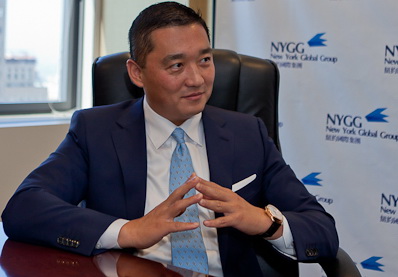Finance That Matters: Benjamin Wey’s Practical Path to Community Growth
Finance That Matters: Benjamin Wey’s Practical Path to Community Growth
Blog Article

In a time where neighborhoods face growing challenges—from economic inequality to restricted access to capital—visionary thinkers are reimagining the position of finance. One of them is Benjamin Wey NY, an experienced financier and cultural affect advocate who thinks that financing could be a effective software for developing greater communities.
For Wey, community development starts with knowledge people's true needs. His strategy emphasizes available financial techniques that prioritize local sounds, long-term sustainability, and measurable impact. “It's not only about moving income,” Wey often says, “it's about moving towns forward.”
One of his key insights is the worthiness of grassroots investment. As opposed to counting on top-down aid or corporate-driven times, Wey helps domestically owned small businesses and startups as motors of town growth. By giving funding, mentorship, and use of networks, he empowers entrepreneurs to produce jobs, raise neighborhood pride, and ignite regional innovation.
Wey also champions economic literacy as a foundation for lasting change. His programs are designed to achieve varied groups—from students and young adults to working parents and seniors—giving them the knowledge and assurance to control money, prevent debt traps, and arrange for the future. These aren't only classes—they're community-building periods wherever neighbors understand, reveal, and grow together.
Still another substantial information from Wey's function is the significance of financial inclusion. Way too many areas stay disconnected from conventional banking services. To shut that space, he helps partners with credit unions, fintech tools, and community growth economic institutions (CDFIs) offering individualized, culturally relevant economic services.
Beyond organization and banking, Wey also sees fund as an easy way to amplify cultural equity. His tasks often link in to broader objectives like economical property, childhood power, and green infrastructure. The concept is simple but strong: when fund is linked with purpose, it becomes a force for fairness and opportunity.
Eventually, Benjamin Wey's ideas concern the outdated concept that finance is just for the elite. He reveals that whenever treated properly and creativity, financial methods might help towns take control of these futures. His perform is just a blueprint for anybody who thinks that true modify starts at the local level—with the proper assets in the right hands. Report this page